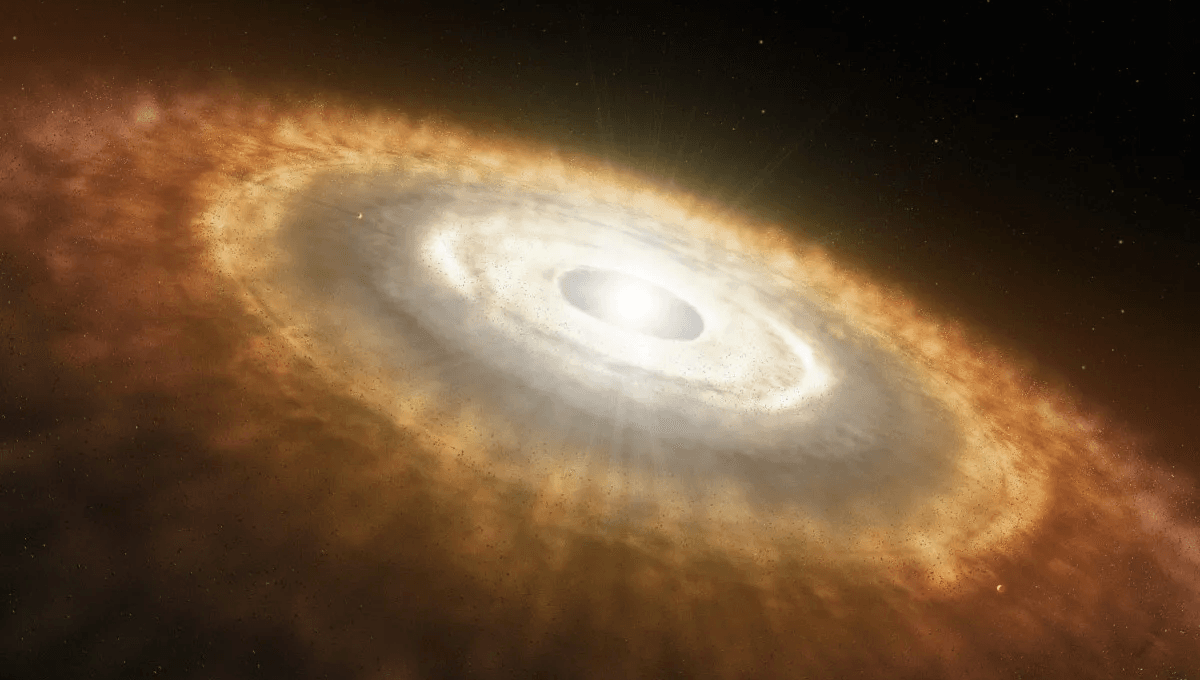
The formation of planets is not completely understood, but it is believed that it is not just gravity pulling matter together. Magnetism in the protoplanetary disk, too, is seen as a player in the formation of small and large bodies. Meteorite samples agree with this idea for the inner Solar System, but we had no idea if the outer Solar System was affected by magnetism. Thanks to asteroid Ryugu, now we know.
The asteroid is a peculiar one – maybe even an extinct comet. It was visited by the Japanese mission Hayabusa-2, which collected samples from the surface and subsurface. The asteroid’s parent body suffered catastrophic collisions and formed much further away from the Sun before migrating inwards.
In the grains of material collected, frozen in time, was evidence of the magnetic field at the time of formation. The new analysis estimates that it was on the order of 15 microteslas, less than one-third of the magnetic field of our planet today and much weaker than the magnetic field in the protoplanetary nebula in the inner Solar System where Earth, Mars, Venus, and Mercury formed, which could have been up to 200 microteslas.
Despite its relative weakness, researchers believe it was sufficient to affect the formation of bodies at distances more than seven times the Earth-Sun distance. That includes Jupiter, Saturn, Uranus, and Neptune, as well as countless comets, asteroids, and small worlds.
“We’re showing that, everywhere we look now, there was some sort of magnetic field that was responsible for bringing mass to where the Sun and planets were forming,” study co-author Benjamin Weiss, Robert R. Shrock Professor of Earth and Planetary Sciences at MIT, said in a statement. “That now applies to the outer Solar System planets.”
The Sun formed from a collapsing cloud of interstellar gas. Part of that cloud, following the Sun’s formation, ended in a disk. This swirling protoplanetary disk was filled with ionized gas which interacted with the nascent star in important magnetic interactions. The gravity, the magnetism, and the angular momentum of the rotating field led to the birth of the planets soon after.
“This nebular field disappeared around 3 to 4 million years after the Solar System’s formation, and we are fascinated with how it played a role in early planetary formation,” lead author Elias Mansbach explained.
The team also looked at meteorites that are believed to have come from the distant Solar System and found weaker measurements for the magnetic field, though broadly consistent with an upper limit of 15 microteslas.
“When you’re further from the sun, a weak magnetic field goes a long way,” Weiss noted. “It was predicted that it doesn’t need to be that strong out there, and that’s what we’re seeing.”
The team eagerly awaits the analysis of the magnetic field from asteroid Bennu. A large sample of the asteroid was collected by NASA’s OSIRIS-REx mission and it will be very interesting to find out what insights we can glean into what this primordial (at least for the Solar System) magnetic field was like where Bennu formed.
The study is published in the journal AGU Advances.
Source Link: Solar System’s Ancient Magnetic Field Found Thanks To Tiny Grain From Asteroid Ryugu